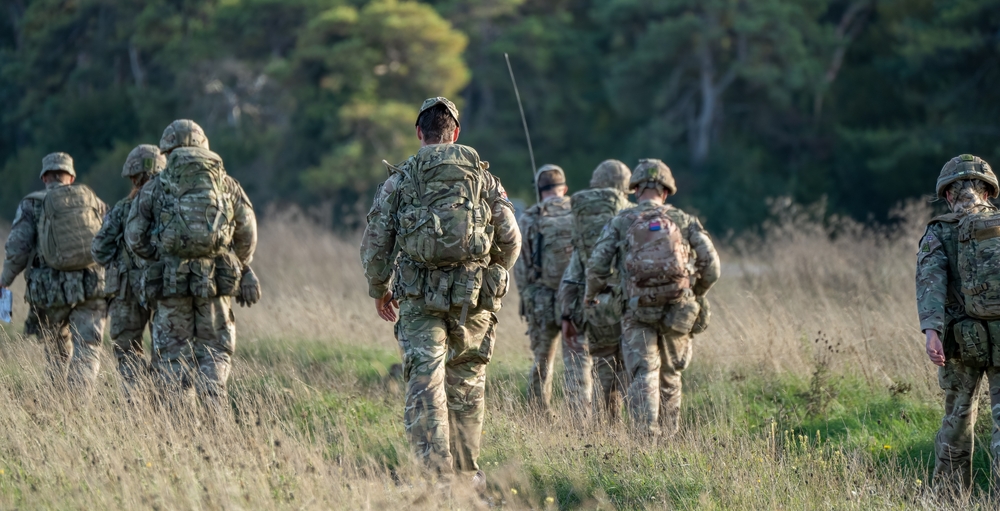A recent online conversation hosted by the Women’s Climate Congress (WCC) and attended by more than 100 women from many different countries revealed one of the most disturbing issues we face in the world today. Along with messages of hope from some brilliant women, the discussion on Women bringing new agendas to COP28 included an eye opening speech from Katrin Geyer, Environment Advisor at Women’s International League for Peace and Freedom(WILPF), about the huge impact that the world’s armed forces have on carbon emissions.
Listening to Katrin I thought of these words of George Orwell: ‘In a time of deceit telling the truth is a revolutionary act’ and I was reminded of how magnificent and enlightening the book 1984 is.
It is mind boggling to see parallels with a book written over 70 years ago. In his dystopian masterpiece, Orwell conveyed so brilliantly how propaganda and censorship feed the dangers of totalitarianism, which are even more disastrous in a time when we face a global challenge that requires truth telling and collaborative action.
Sure enough, countries do not want to disclose the scope of their military forces, and therefore the emissions that they produce. Yet an estimate by international experts, quoted by Ms Geyer, suggests that militaries are among the world’s biggest consumers of fuel, accounting for 5.5% of global greenhouse gas emissions. (For reference – all global civil aviation produces 2.4% of global emissions).
Pondering on how global finances and attention are directed now, we can clearly see that there is little to no concern for the planet and people impacted by climate change when it comes to the military. There are many natural disasters happening, yet the response from the world leaders is basically non-existent. However, when there is even a minor military conflict, all politicians and news outlets are talking about it.
This year alone the military has cost us 2.24 trillion USD, setting the record for spending money on war in all history. Needless to say, this is actively diverting resources from tackling the climate crisis and supporting those most affected. The narrative across the media is all about individuals – it is easy to shame people and tell them to stop flying or buy an electric car, but can you do that to the military machine that gets a free ride?
It is vital that we require the military to disclose all their emissions, as without thorough and accurate reporting, there is no accountability for their impact.
A fully ‘green’ military is a fantasy, as there are no alternatives to the colossal amounts of fuel used by fighter jets, ships and tanks not only in war, but also in training. It leads us to the argument that only a peaceful planet can be healthy and sustainable. Current WILPF campaign insists on including armed force emissions in COP28 negotiations as well as work towards a feminist agenda of overall demilitarisation.
All of the speakers at the event reinforced the idea that as the climate crisis progresses and becomes worse, we still have hope and the ability to contribute in both big and small ways. For instance, peace is featured on the COP 28 programme for the first time. It is a small step, but one that should be celebrated.

Polina argues knowledge of the truth allows us to make better decisions and take appropriate action, while ignorance can lead to disastrous consequences. Picture: Shutterstock
It sends a signal to governments and their negotiators that peace is on the agenda and should be seen as a priority. While wrapping up the discussion, speakers came back to the necessity of having all kinds of diverse perspectives for such a complex issue as climate change, clearly communicating alternatives to the current state of the world, patriarchy, capitalism and the military. Katrin reinforced that idea: ‘Providing a crystal clear vision of how the world will look like will help mobilising more people and making sure the women’s perspectives and ambitions are heard and made a reality’.
As a climate scientist, I wanted to add some suggestions for researchers while the negotiations for demilitarisation are taking place:
- Researchers need to promote clear, time-sensitive, quantitative criteria for accounting, reporting, and lowering military emissions.
- Researchers should collaborate with the military on ways to calculate, manage, and cut emissions.
- Researchers must study and document the effects of armed warfare on the environment and society. It’s essential for figuring out recovery pathways and understanding the long-term costs of armed conflict.
This issue requires governments to work together with peacemakers, military and academia to develop an accepted and efficient method of emission accounting and reduction. This all comes back to inclusivity, collaboration, compassion and intuitiveness – qualities of women’s leadership that are urgently needed to redress the historical and systemic imbalance and lead to real long-lasting change.
Here‘s a link to the full WCC Climate Conversation and for more on the military’s contribution to climate change and how feminism can be a part of the solution here is an excellent panel held this year by the UN Climate Change Conference in Bonn on demilitarisation and decarbonisation.
- Please note: Picture at top is a stock photo
Polina Avilova is an Environmental Management and Sustainable Business student at Griffith University. She is passionate about climate change action and deeply committed to justice, equality, diversity and inclusion. My spare time is usually spent outdoors and in nature, teaching yoga, learning about health, mindfulness and self-actualisation.





